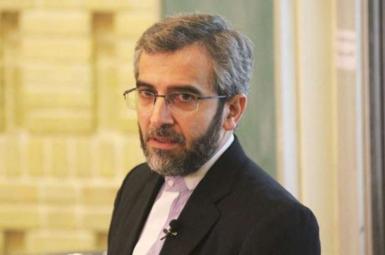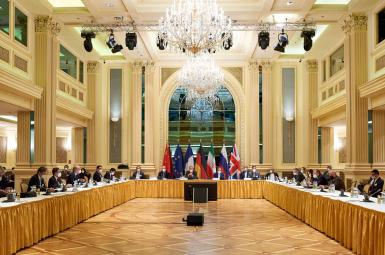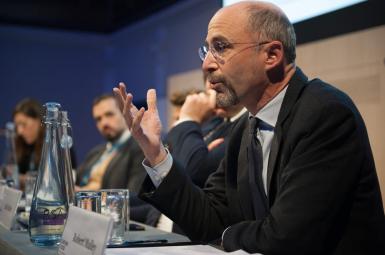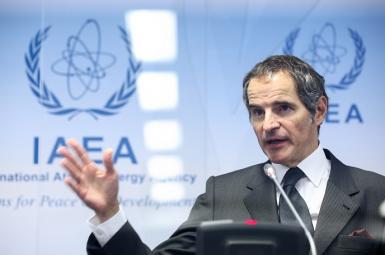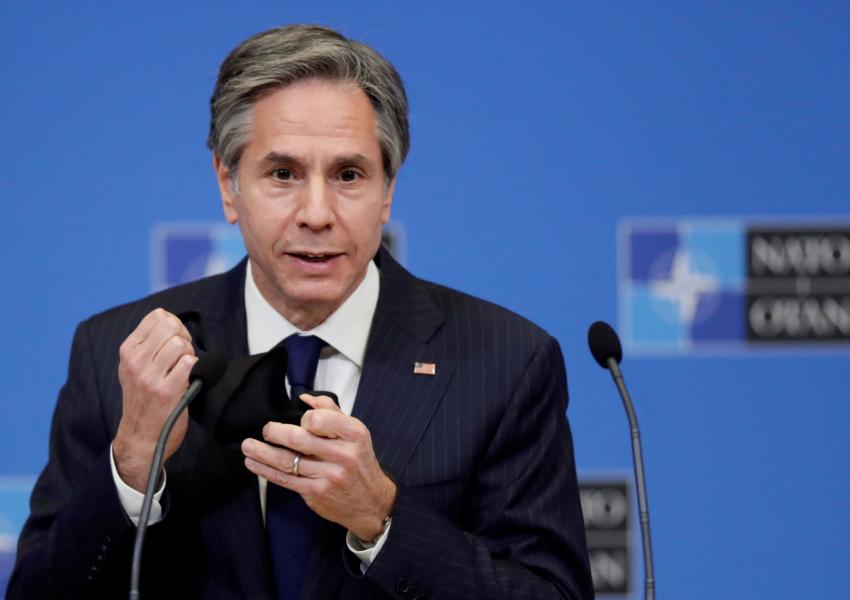
Blinken Says Not Clear If Iran Ready To Return To Nuclear Compliance
After five rounds of multilateral talks in Vienna to revive the 2015 Iran nuclear deal, US Secretary of State Antony Blinken told lawmakers on Monday [June 7] that it is not clear if "Iran is willing and prepared" to return to compliance with the agreement.
Blinken testified before two congressional committees: the US House Foreign Affairs Committee and the House Appropriations Subcommittee on State, Foreign Operations, and Related Programs. The hearings were focused on the US State Department’s Foreign Policy Strategy and the FY22 Budget Request.
In response to questions from legislators on re-entering the Iran nuclear deal, Secretary Blinken said “it remains unclear whether Iran is willing and prepared to do what it needs to do [to] come back into compliance. Meanwhile, its program is galloping forward…The longer this goes on, the more the breakout time gets down…it is now down, by public reports, to a few months at best. And if this continues, it will get down to a matter of weeks.” The secretary stressed that the US is “not even at the stage of returning to compliance for compliance. We don’t know if that’s actually going to happen.”
Such an assessment of the state of play on the nuclear file prompted a tweet from Iran’s Foreign Minister Javad Zarif, where he responded, “it remains unclear whether @POTUS and @SecBlinken are ready to bury the failed ‘maximum pressure’ policy of Trump and @MikePompeo, and cease using #economicterrorism as bargaining ‘leverage’. Iran is in compliance with the #JCPOA. Just read paragraph 36. Time to change course.”
These remarks come as the talks in Vienna aimed at reviving the Iran nuclear deal are scheduled to resume on Thursday. World powers and Iran are at a critical juncture in the negotiations, as the Iranian presidential election is on June 18 and the temporary bilateral technical understanding with the International Atomic Energy Agency (IAEA), which preserves continuity of knowledge as to monitoring Iran’s nuclear program, expires on June 24.
Separately, Republican Members of Congress asked Secretary Blinken about Iran’s support to Palestinian militant groups in the aftermath of the recent hostilities between Israel and Gaza. He stressed that Iran’s support for Hamas has been a persistent problem before, during, and after US participation in the nuclear deal. The secretary added that “the best public assessment that we have…in this most recent incident [is that] most of the rockets were indigenously produced in Gaza by Hamas. That does not excuse in any way Iran’s support for Hamas, including very strong rhetorical support, in this most recent incident.” But there is evidence to suggest that while Iran may not have provided Palestinian militants the rockets themselves, Tehran has invested in training these groups in local production of the munitions and provided financial support.
During the fighting, Iranian officials—including the Commander of the Islamic Revolutionary Guard Corps’ (IRGC) Quds Force Esmail Ghaani—spoke by phone with their Palestinian counterparts, including Ismail Haniyeh, the political chief of Hamas, and Ziyad Al-Nakhalah, the secretary-general of Palestinian Islamic Jihad. Lebanese media, specifically the editor of pro-Hezbollah Al-Akhbar, reported that the IRGC established a joint operations room with Hezbollah and Palestinian militants in Beirut in May, with the Quds Force commander visiting twice during the fighting with Israel. But there were no questions on those allegations during the congressional hearings on Monday, and U.S. officials have not commented on the reports.


